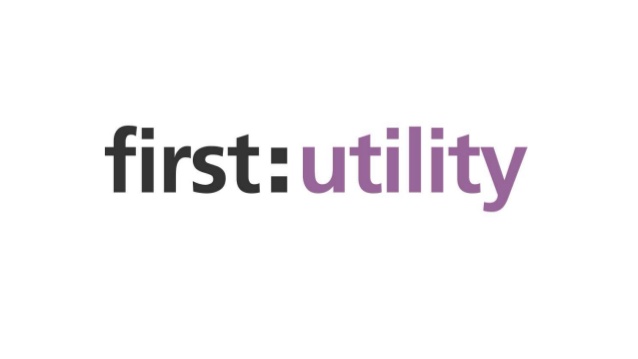
The world of application development and deployment has undergone a seismic shift. Cloud-native architectures, powered by Open Source, are now the foundation for organizations seeking scalability, agility, and unwavering resilience. At Sirius, we're at the forefront of this transformation, helping businesses navigate the complexities and unlock the immense potential of cloud-native Open Source.
In this post, we'll address the most pressing questions we hear from organizations exploring this exciting landscape.
You Ask: "Why is everyone talking about cloud-native and Open Source?"
We Answer:
The buzz around cloud-native and Open Source is well-deserved. It's not just hype; it's a fundamental change in how applications are built and run.
- The Cloud-Native Drive:
- Cloud-native technologies are designed to fully leverage the cloud computing model. This means:
- Containers: Lightweight, portable units of software that package code and dependencies.
- Kubernetes: An orchestration platform that automates the deployment, scaling, and management of containers.
- Microservices: An architectural style that structures applications as a collection of loosely coupled services.
- These technologies enable:
- Scalability: Applications can easily scale up or down to meet demand.
- Agility: Faster development and deployment cycles.
- Resilience: Systems that can withstand failures and recover quickly.
- Cloud-native technologies are designed to fully leverage the cloud computing model. This means:
- Open Source's Central Role:
- Open Source is the engine driving cloud-native. Projects like Kubernetes, Docker, and many others are open source, fostering innovation and collaboration.
- Open Source provides a flexible, cost-effective, and community-driven alternative to proprietary solutions.
You Ask: "What are the biggest challenges with cloud-native Open Source?"
We Answer:
While the benefits are significant, cloud-native Open Source does present some challenges:
- Kubernetes Complexity:
- Kubernetes, while powerful, is notoriously complex to set up, manage, and secure.
- Companies often struggle with:
- Configuration and deployment.
- Networking and storage.
- Security and access control.
- Upgrades and maintenance.
- Serverless Open Source:
- Serverless computing offers even greater agility and scalability, but adopting Open Source serverless technologies (like Knative or Apache OpenWhisk) requires:
- Understanding different frameworks and their capabilities.
- Integrating serverless functions with existing applications.
- Managing the complexities of event-driven architectures.
- Serverless computing offers even greater agility and scalability, but adopting Open Source serverless technologies (like Knative or Apache OpenWhisk) requires:
- Observability:
- In distributed cloud-native environments, monitoring and managing system health becomes much more challenging.
- Observability—the ability to understand the internal state of a system based on its outputs—is crucial. This involves:
- Logging: Collecting and analyzing log data.
- Metrics: Tracking performance metrics.
- Tracing: Following requests across different services.
- Open Source tools like Prometheus, Grafana, and Jaeger can help, but setting up a comprehensive observability strategy requires expertise.
You Ask: "How can we address the complexity of Kubernetes?"
We Answer:
Kubernetes doesn't have to be overwhelming. Here are some strategies:
- Managed Kubernetes Services:
- Cloud providers (AWS, Azure, Google Cloud) offer managed Kubernetes services (EKS, AKS, GKE) that simplify setup and management.
- These services handle infrastructure, upgrades, and scaling, allowing you to focus on your applications.
- Kubernetes Distributions and Platforms:
- Various Kubernetes distributions and platforms provide pre-configured environments and tools to streamline deployments.
- Infrastructure as Code (IaC):
- Use tools like Terraform or Ansible to automate Kubernetes provisioning and configuration.
- IaC makes deployments consistent, repeatable, and easier to manage.
- Security Best Practices:
- Implement robust security measures:
- Role-Based Access Control (RBAC) to control access to Kubernetes resources.
- Network policies to isolate workloads.
- Container security scanning to identify vulnerabilities.
- Implement robust security measures:
- Expert Guidance:
- Partnering with a Kubernetes expert can significantly reduce complexity and ensure a successful implementation.
You Ask: "What are the benefits of Open Source serverless?"
We Answer:
Open Source serverless technologies offer several advantages:
- Vendor Neutrality: Avoid vendor lock-in by using Open Source solutions that can run on different cloud providers or on-premises.
- Customization: Adapt serverless platforms to your specific needs.
- Cost Optimization: Potentially reduce costs compared to proprietary serverless offerings.
- Community Support: Benefit from the innovation and support of a vibrant community.
You Ask: "How do we implement effective observability in cloud-native?"
We Answer:
Building a robust observability strategy is essential:
- Choose the Right Tools:
- Prometheus for metrics collection and monitoring.
- Grafana for data visualization and dashboards.
- Jaeger or Zipkin for distributed tracing.
- Elasticsearch, Fluentd, and Kibana (EFK stack) for logging.
- Instrument Your Applications:
- Add code to your applications to generate logs, metrics, and traces.
- Collect and Analyze Data:
- Set up systems to collect, store, and analyze observability data.
- Create Dashboards and Alerts:
- Build dashboards to visualize key metrics and set up alerts for critical events.
- Automate Responses:
- Incorporate automated responses to common issues to improve uptime.
You Ask: "How can Sirius help with cloud-native Open Source?"
We Answer:
Sirius provides comprehensive services to help businesses navigate the complexities of cloud-native Open Source:
- Cloud-Native Strategy and Consulting: We help you develop a cloud-native strategy aligned with your business goals.
- Kubernetes Implementation and Management: We design, deploy, and manage Kubernetes clusters, ensuring optimal performance and security.
- Serverless Architecture and Development: We assist in adopting and implementing Open source serverless solutions.
- Observability Solutions: We build robust observability platforms to monitor and manage your cloud-native environments.
- DevOps Enablement: We help you adopt DevOps practices and tools to accelerate your development lifecycle.
- Training and Support: We provide expert training and ongoing support to empower your team.
In Conclusion
Cloud-native Open Source is transforming how applications are built and deployed. While challenges exist, the benefits of scalability, agility, and resilience are undeniable. By understanding the key considerations and partnering with an expert like Sirius, businesses can unlock the full potential of cloud-native Open Source and drive significant business value.
















































